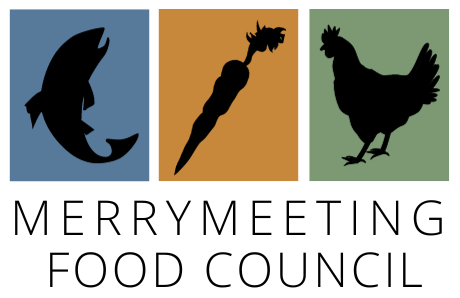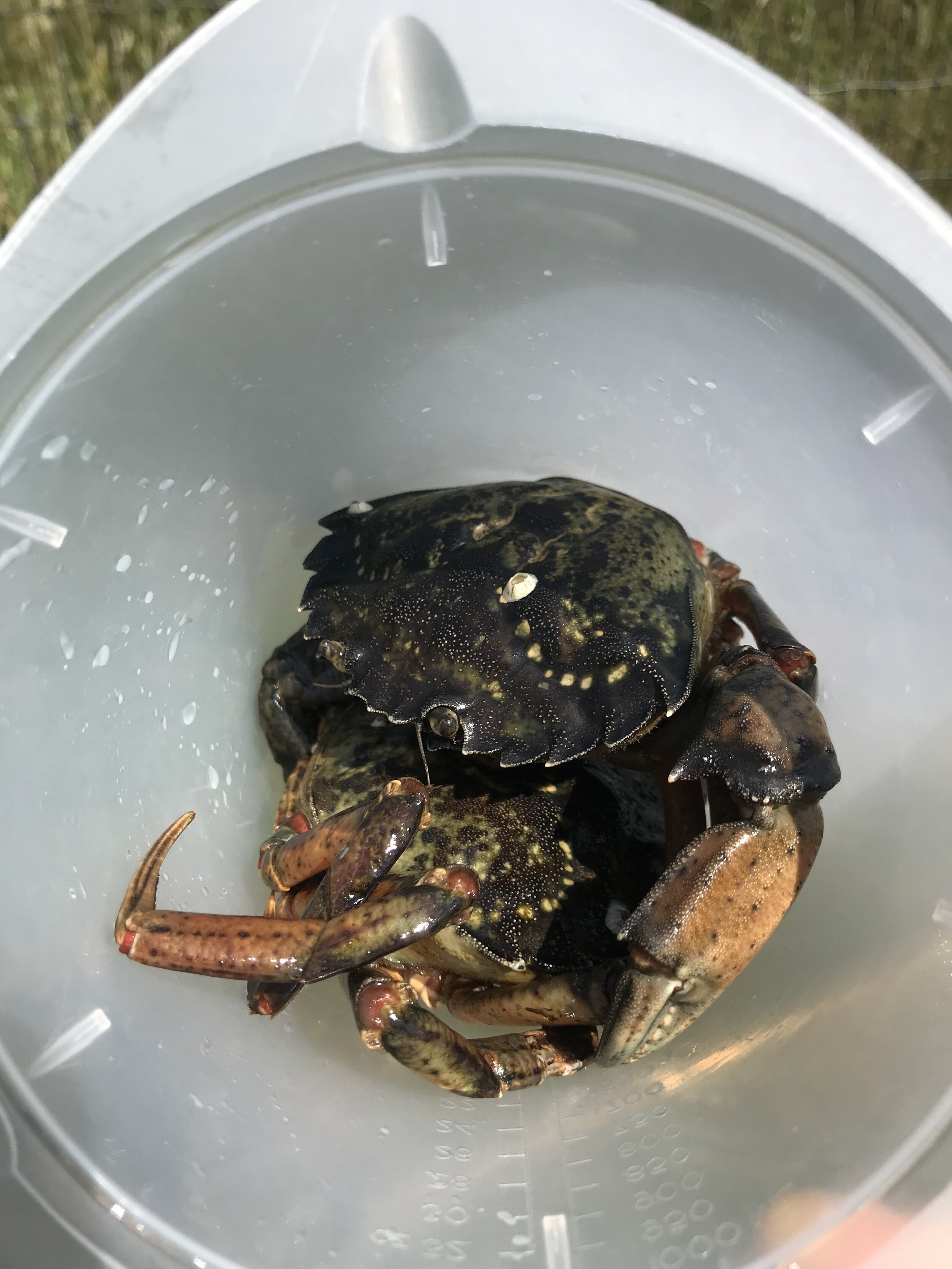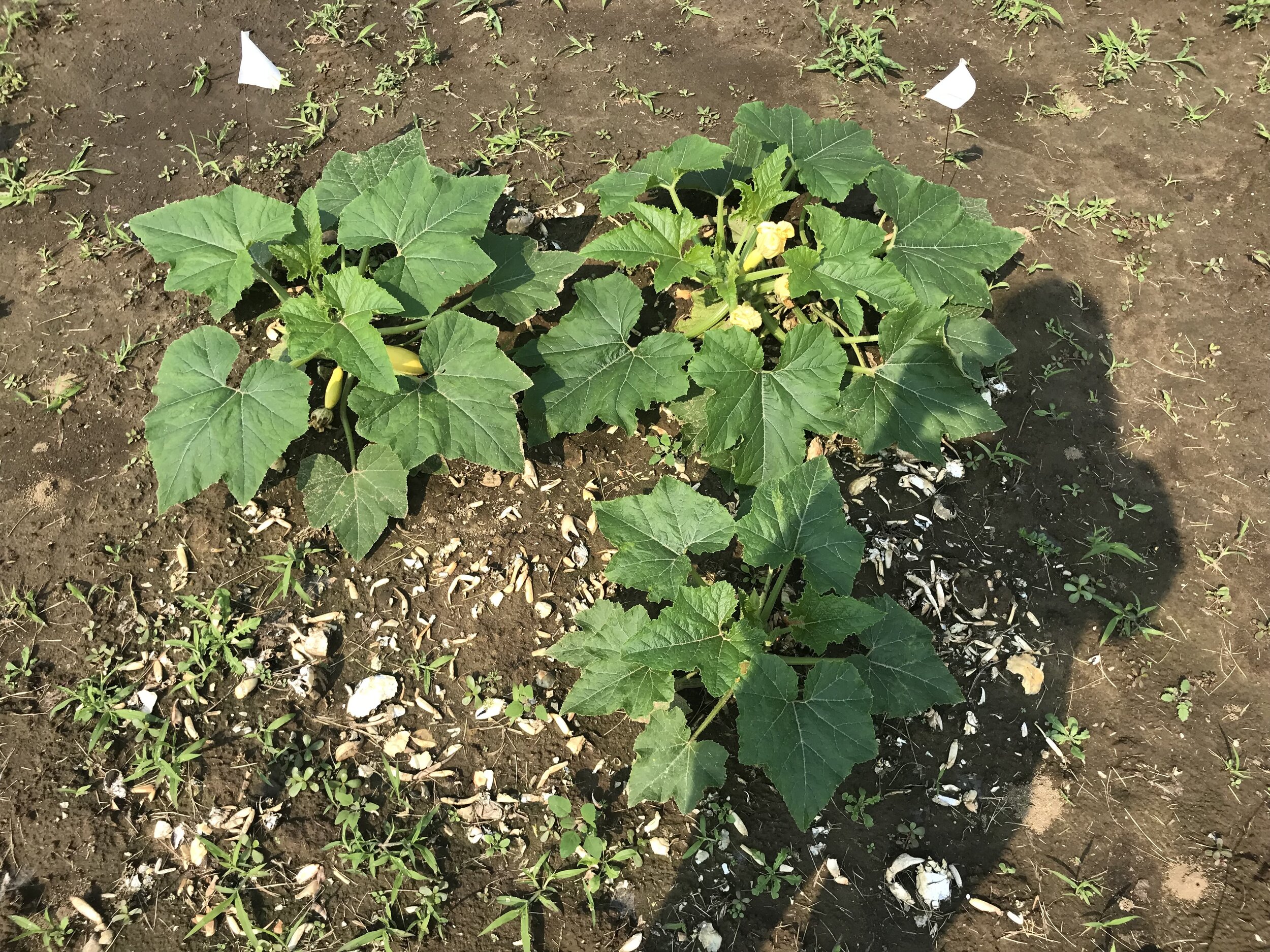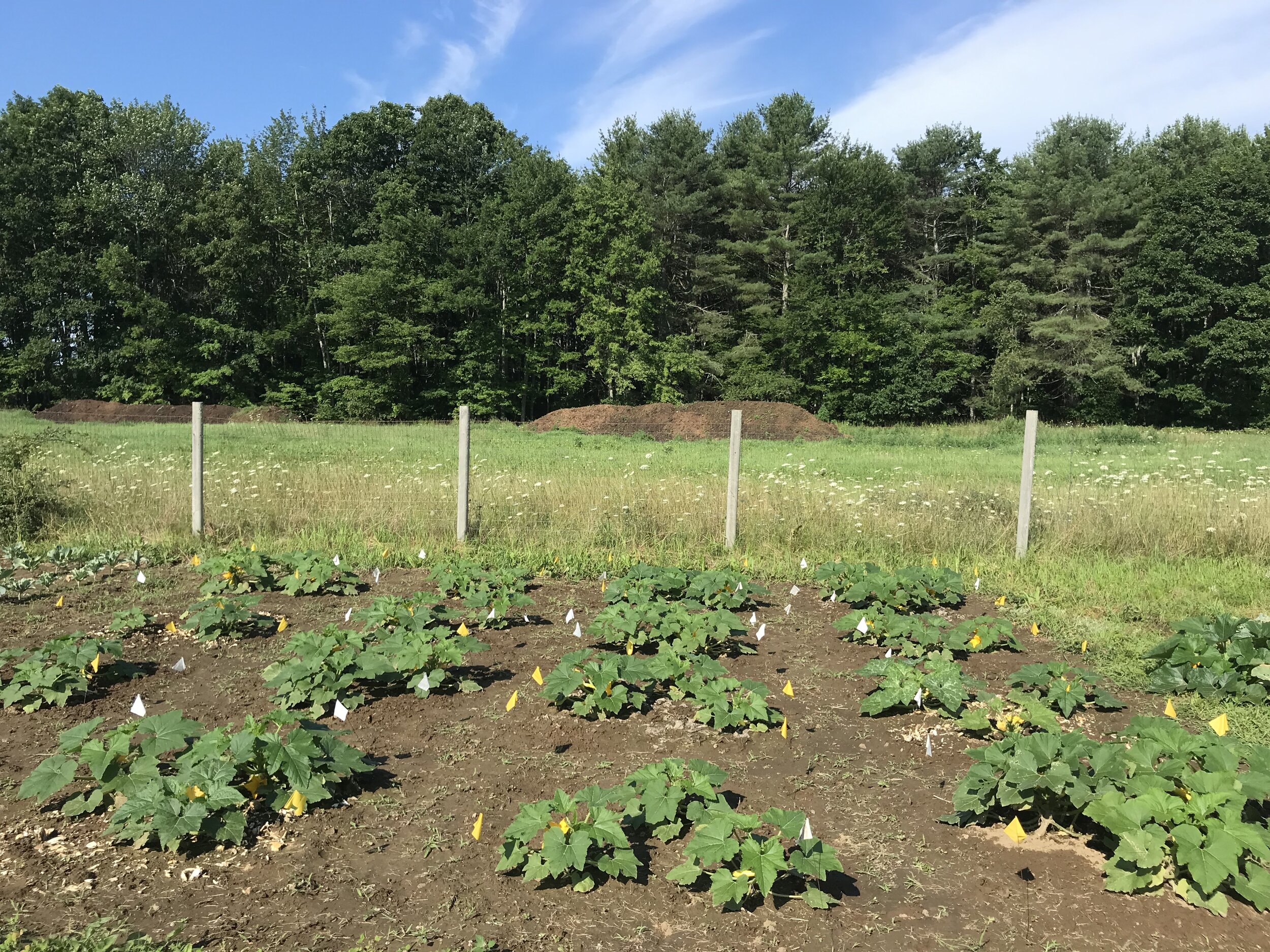Growing Trials…
Merrymeeting Food Council was excited to be working this summer with Delaney Bullock, a Denning Fellow through Bowdoin College’s McKeen Center for the Common Good. Delaney (she/her) is a rising senior at Bowdoin. She shared the following summary of her research. We look forward to sharing the results of her work later this year.
———
Through Bowdoin’s McKeen Center Denning Fellowship and partnership with the Merrymeeting Food Council I am researching the use of marine derived products as soil amendments. Specifically, I am conducting growing trials at the Tom Settlemire Community Garden using the invasive green crab [ground] and sea farm grown kelp as soil amendments to grow yellow straightneck summer squash. I am comparing the ocean-derived amendments to a standard 4:3:3 pelletized chicken manure and control plots with no treatment. I will continue this project as an independent study at Bowdoin in the fall, but I hope to use this summer to collect data and do much of the hands on work during the growing season that wouldn’t be possible to do during the school year.
I have divided my 24' x 24' foot plot into 16 4' x 4' subplots with a one foot buffer around each. In four of the subplots each I have incorporated fresh, ground up green crabs, kelp, chicken manure and four have been left as controls. Three squash plants are planted 24 inches apart in each 4' x 4' subplot.
Before planting or amending the soil I took initial soil samples to test for bulk density and water content. I have also collected and prepped aggregate soil samples from each subplot for conducting nutrient analysis when the Earth and Oceanographic department lab equipment is running in the fall.
Beyond my specific trials, a broad question guides my work. Is there a scalable model to use marine derived amendments--specifically kelp and green crabs--in agriculture? Potential issues in developing this model are supply chain issues and economic factors. However, there could be great climate, environmental and ecological benefits to using these products in agriculture.
I collected soil samples and measured plant productivity in order to determine if there was a difference in final soil nutrients, soil properties, or squash production between treatments. All squash that was not needed in the lab, I donated to the Mid Coast Hunger Prevention Program. Besides my own trials, I am conducting community-based research through surveys and interviews with local farmers and fishers to learn what factors might affect the adoption of these products by farmers and what factors might be influencing the production of kelp and green crabs in Maine.
Working with the Merrymeeting Food Council this summer has granted me valuable time during
the growing season, garden space, and a broad network of local connections. As my 36 squash
plants continue to rapidly produce, I will carry this work into the academic year at Bowdoin
where I will be able to run nutrient analysis of soil and plant biomass samples.
———
Additional information on Maine seaweed:
Seaweed market analysis for Maine: 2020 Island Institute Report.
From the Sea Up podcast episode focused on Kelp Farms by Island Institute.
First farm in Casco Bay in 2010; now 94 Kelp farms on the coast of Maine (2019)!






